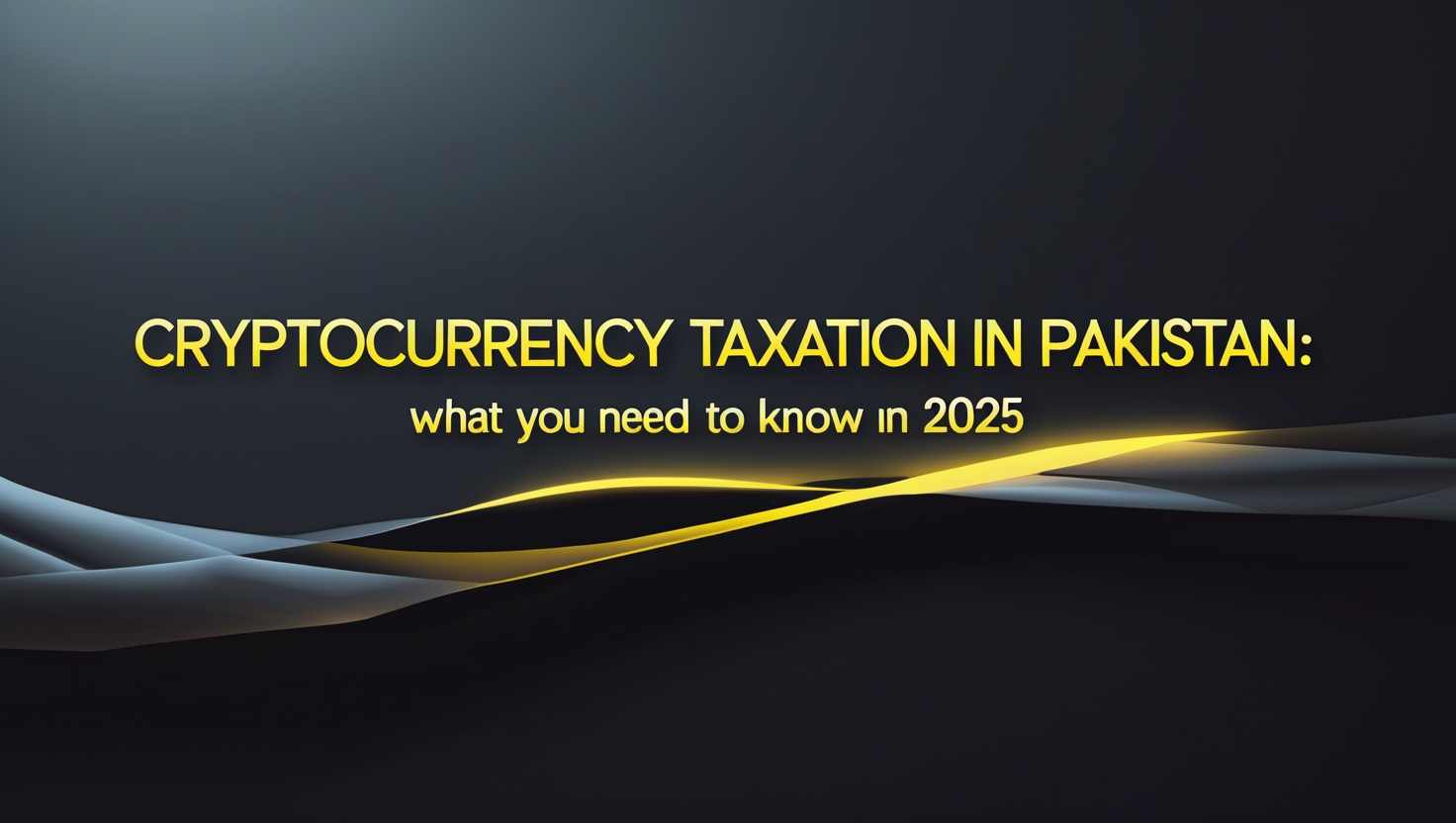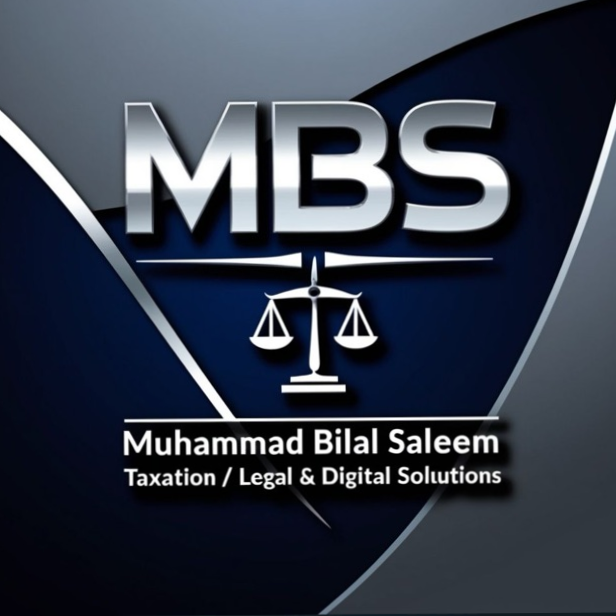
Cryptocurrency Taxation in Pakistan
Taxes on Cryptocurrencies in Pakistan: Legality, Compliance and Future Outlook
The rise of cryptocurrencies has disrupted traditional financial systems around the world – and Pakistan is no exception. While the adoption of digital currencies such as Bitcoin, Ethereum and stablecoins is gaining momentum among investors and freelancers in Pakistan, the regulatory and tax environment is complex and uncertain.
A cryptocurrency refers to a coin’s ownership being stored in an electronic ledger in a computer database using strong cryptography to secure all entries and to control the history of the coin and verify the transfer of the coin to its original owner. It is different from regular currency. Cryptocurrencies are not like paper currency and are not issued by a central bank. Some cryptocurrencies use a decentralized system, as opposed to a centralized digital currency and a central bank. If a cryptocurrency is created before it is issued, it is considered centralized. In the modern era, when cryptocurrency is implemented through a decentralized system, each cryptocurrency operates under distributed ledger technology. This system is called blockchain.
Explores the current landscape of cryptocurrency/digital currency taxation in Pakistan, including its legal status, tax liabilities, and possible direction of future regulation.
1. Legal Status of Cryptocurrency/Digital Currency in Pakistan
As of 2025, the State Bank of Pakistan (SBP) has not recognized cryptocurrency/digital currency as legal tender. In fact, through its circular issued in April 2018, the State Bank prohibited banks and financial institutions from dealing in virtual currencies/digital currency or tokens.
However, it is not explicitly illegal for individuals to own, trade, or mine cryptocurrencies/digital currencies. Due to increasing pressure from international bodies such as the Financial Action Task Force (FATF), Pakistan is working towards developing a regulatory framework, and some progress has been seen at the provincial level, particularly in Khyber Pakhtunkhwa.
2. Are cryptocurrencies/digital currencies taxable in Pakistan?
Cryptocurrency Taxation in Pakistan
While the SBP prohibits the use of crypto in the mainstream financial system, the Federal Board of Revenue (FBR) considers income derived from cryptocurrencies/digital currencies as taxable under the general principles of the Income Tax Ordinance, 2001.
Categories of income that may be applicable:

Cryptocurrency Taxation in Pakistan
Capital Gains Tax (CGT) If crypto is held as an investment and sold at a profit, it falls under capital gains and is taxable accordingly.
Cryptocurrency Taxation in Pakistan
Bess Incomeusin If crypto trading or mining is a regular activity, the income can be classified as business income.
Foreign Income If crypto assets are earned abroad (for example, through freelancing or investment), they are subject to foreign income tax provisions, especially if remitted to Pakistan.
Tax Filing and Reporting Obligations

How to Declare Crypto in Your Tax Return
Cryptocurrency Taxation in Pakistan
Despite the lack of a specific legal framework, crypto/digital currency holders are required to disclose assets in their tax returns and declare income from digital currencies.
Wealth Statement Individuals must declare crypto assets under the Foreign or Other Assets section of the annual wealth statement filed with the FBR.
Foreign Income Declaration If crypto income/digital currency income is earned outside Pakistan, it must be reported under foreign income even if the funds are not brought into the country.
Capital Gain Reporting Traders must maintain detailed records of purchase and sale transactions including date, price, and profit or loss for accurate computation of CGT.
4. Penalties for Non-Disclosure/Non-Disclosure
Cryptocurrency Taxation in Pakistan
The FBR has adopted a more aggressive approach to tracking down undisclosed wealth. If cryptocurrency/assets or income are found and not reported:
– Penalties under Section 182 of the Income Tax Ordinance may apply.
– audit In some cases, an audit or investigation may be initiated.
– Reputational and legal risks may arise if the source of funds is not clear.
5. Crypto and Banking Restrictions

Cryptocurrency Taxation in Pakistan
As per the State Bank of Pakistan’s restrictions, Pakistani banks cannot facilitate crypto-related transactions such as:
– Deposits or withdrawals from crypto exchanges.
– Payments to international platforms such as Binance, Coinbase, or Kraken.
However, many users are still engaging with crypto using peer-to-peer (P2P) models, USDT (Tether) transfers, or international payment apps — although these methods may involve risk. But another concern for the Pakistani government may be that this will lead to a rapid outflow of funds from Pakistan and the government will not be able to stop this ‘capital outflow’.
6. The Future of Cryptocurrency Regulation in Pakistan
Cryptocurrency Taxation in Pakistan
A report submitted by the authorities in Pakistan to the Sindh High Court on cryptocurrency said that it should be banned due to the risk of fraud.
However, Pakistan has also made encouraging progress in terms of cryptocurrency transactions, which shows that Pakistan is working towards a regulated crypto ecosystem:
The SECP (Securities and Exchange Commission of Pakistan) has issued a consultation paper on digital assets
7. Actionable Tips for Crypto Users/Digital Currencies in Pakistan
Cryptocurrency Taxation in Pakistan
- Be Transparent: Track everything ,dates, values, wallets, exchanges.
- Declare Income: Always report/add your crypto details n your tax return.
- Avoid Using Banks for Crypto: Stick to safe espaciely P2P options.
- Stay Updated: Followlegals forums like FBR, SBP, and SECP
Conclusion
Cryptocurrency Taxation in Pakistan
Cryptocurrency/digital currencies is not yet officially recognized in Pakistan, but the FBR considers income from it taxable. Since the sector is growing rapidly, significant changes in crypto laws and tax framework are possible in the near future.
Contact Us
Cryptocurrency Taxation in Pakistan
We’d love to hear from you! Feel free to reach out if you have questions, need guidance, or just want to chat about taxes (yes, it can be fun!).
Follow us on social media for updates, tips, and tax humor:
- Facebook: MBS Taxation
- Website: MBS Taxation
- Our Website Contact Form: Click Here
- Whatsapp Number: +923087543324
We’re here to simplify your taxes so you can focus on what matters most—your work, business, and life!
FAQs
Cryptocurrency Taxation in Pakistan
Is cryptocurrency legal in Pakistan?
Cryptocurrency is not recognized as legal tender by the State Bank of Pakistan (SBP), and banks are prohibited from dealing in it. However, individuals are not banned from owning, trading, or mining crypto,it exists in a legal gray area.




